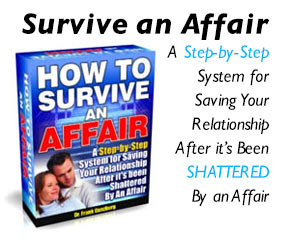Anger In Marriage
Is Anger in Marriage Good or Bad?
Is it good or bad to express anger in marriage? I read in a marriage book once (Marriage Mediator by Karl Schmidt) that wives should “express anger and contempt” and husbands should also “engage in conflict” to clean out their marriages from disagreements or arguing.
This idea could be damaging to a couple’s relationship and I am concerned for couples who might follow this advice.
Saving Your Marriage
In order to truly save your marriage, you need to have the right tools in your toolbox. Even if you are following bad advice perfectly, your marriage might fail.
Be Careful Selecting Marriage Counselor or Self-Help
In my opinion (I’ve been doing this for over 40 years), this example demonstrates how careful you have to be in finding a marriage counselor or a self-help program for marriage problems.
People tell me their experiences with other marriage counselors and individual therapists. Sometimes I am appalled at the advice they’ve been given, particularly when the marriage counselor encourages “getting out their anger.”
I have also seen how individual therapy can lead to divorce.
Practice Makes Perfect
My wife has a sign over her sink that says, “Practice makes perfect so be careful what you practice.” (William Channing)
If you are practicing anger, and particularly if it includes contempt, you better be careful because you might get really good at it.
Anger is For Enemies
Historically, anger is an emotion we need to deal with enemies. I should hope that your spouse is your friend, not your enemy.
If you’re in marriage counseling or a self-help program and you’re encouraged to express contempt or strong anger to your spouse, it is my opinion that this path will lead you to be stronger enemies and not stronger friends in the long run.
Express Your Feelings Respectfully
Some of you reading this might incorrectly think I mean that you have to stuff your feelings. I do not mean that.
If you and your spouse are best friends, you’ll tell each other your feelings, including the bad feelings. Sometimes, you might even raise your voice, but not yelling or screaming. When you communicate your negative thoughts, concerns and complaints, you will do so in a respectful way without name-calling or other put downs and certainly without contempt.
Some people grow up naturally learning how to communicate as best friends. Most people who have to learn this as adults take lessons, usually from a trained therapist. Unfortunately, too many people never learn. Rarely does a day go by when I am not teaching at least one couple the skill of arguing without anger.
Here’s wishing you a wonderful marriage and a close family,
![]()
Tags: Anger, Best Friends, Marriage Counselor, Therapy
Related
- Taken for Granted
Being taken for granted in your marriage can lead to anger and resentment. In everyday married life,... - A Jealous Spouse
Are you dealing with a jealous spouse? With a jealous spouse there will be feelings of frustration a... - Meet Dr. Gunzburg
Meet Dr. Gunzburg Watch This Short Video (0:49) https://www.youtube.com/watch?v=dleyxtSHHVs Meet Dr....
Free Marriage Tips
- Lost the love
Lost the Love Many couples find over the years that it feels as though they have lost the love in th... - Arguing
Arguing Arguing in marriage can be harmful because arguing often leads to anger. Of course, it is of... - Stop Divorce
Stopping divorce is possible. Many couples have successfully recovered from the brink of divorce and...



